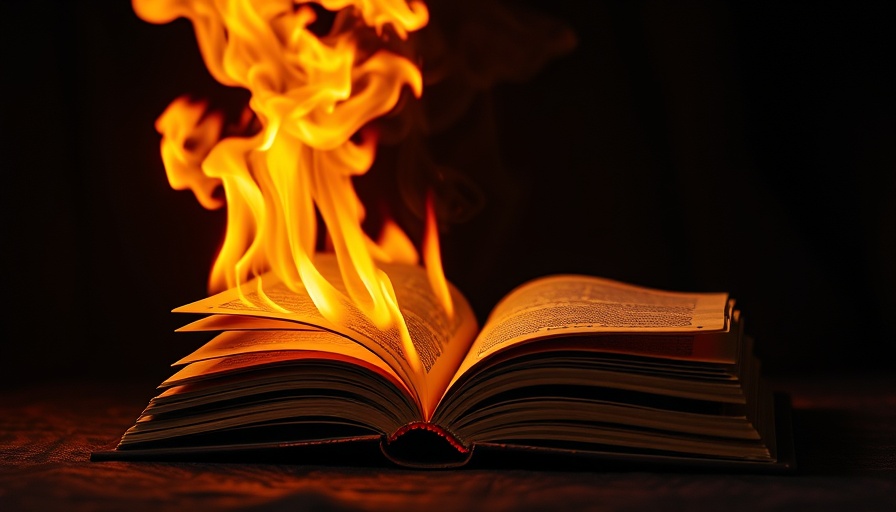
Understanding the Sensitivity Era: A Threat to Creative Freedoms
In recent years, the literary landscape has been increasingly influenced by a movement often referred to as the "Sensitivity Era," which raises essential questions about free expression and creativity in publishing. Author Adam Szetela’s exploration in "That Book Is Dangerous" sheds light on how social media backlash, particularly from platforms like Goodreads, has begun to overshadow traditional avenues of critique and censorship, including government actions.
Instances of public outcry in response to certain book themes, character representation, and author backgrounds are common. Publishers today face an unprecedented challenge: the fear of outrage campaigns that can lead to significant alterations or outright cancellations of literary works. This self-censorship, even among progressive authors, showcases the complexities of intent versus impact in contemporary storytelling.
Recent Cancellations: Reflecting a Changing Paradigm
The cancellation of bestselling author Sophie Lark’s novel "Sparrow and Vine" highlights how quickly public sentiment can turn against a work. Following social media scrutiny that deemed a character racist and politically misaligned, the backlash was swift and severe. Lark’s apology and commitment to sensitivity readers underlines a shift where authors feel pressured to conform to evolving societal norms driven by online communities.
Similarly, Elizabeth Gilbert’s decision to delay her novel "The Snow Forest" came amid criticism regarding its timing against the backdrop of geopolitical conflicts. The adverse reaction on Goodreads showed how sensitive subject matter, even when reflective of historical truths, may not align with current public emotions.
The Ripple Effect: Implications for Literary Diversity
While the intent behind a sensitivity-focused approach is to promote a more inclusive literary world, the consequences can be profound. The case of Amélie Wen Zhao’s "Blood Heir" further illustrates the dangers of moral panic affecting literature. Zhao faced allegations of racial insensitivity, resulting in an extensive re-evaluation of her work prior to its release. Ironically, such reactions can limit the very diversity and representation these movements purport to champion.
This altered landscape raises critical questions about how publishers navigate between meeting audience demands and protecting authors’ freedom to explore diverse and challenging narratives. Could this fear of reprisal potentially stifle creativity and result in a narrower scope of storylines, especially those touching on difficult and complex themes?
The Role of Social Media in Shaping Literary Discussions
Social media platforms like Goodreads serve as a double-edged sword; while they allow for greater accessibility and discussion of books, they also can foster an environment ripe for cancel culture. The collective power of readers, driven by passionate and often vocal online communities, can pressure authors and publishers into taking preemptive measures against potential backlash.
This shift towards a mediated literary environment suggests a need for greater balance – one where feedback is valued but does not lead to a climate of fear. Encouraging constructive dialogue rather than outrage can pave the way for healthier literary discourse.
Creating a Path Forward: Embracing Creative Freedom
As we navigate this changing literary landscape, embracing creative freedom becomes crucial. Publishers need to find ways to support authors while maintaining diversity of thought and expression. This involves fostering discussions that allow for genuine engagement with sensitive topics without fear of retribution.
Moreover, readers have a unique opportunity to influence the conversation. By advocating for the appreciation of complex narratives that speak to broader human experiences, they can contribute to a culture that celebrates, rather than constrains, creativity. Encouraging readers to seek out diverse voices in literature and be willing to engage with challenging or uncomfortable themes paves the way for a richer, more inclusive storytelling tradition.
If you’re intrigued by stories that capture the resilience of the human spirit during historical upheavals, consider picking up "The Call of the Blackbird" by Nancy Polk Hall. This historical fiction mystery set in Nazi-occupied France weaves a tale of love and secrets amidst the backdrop of World War II.
 Add Row
Add Row  Add
Add 




Write A Comment